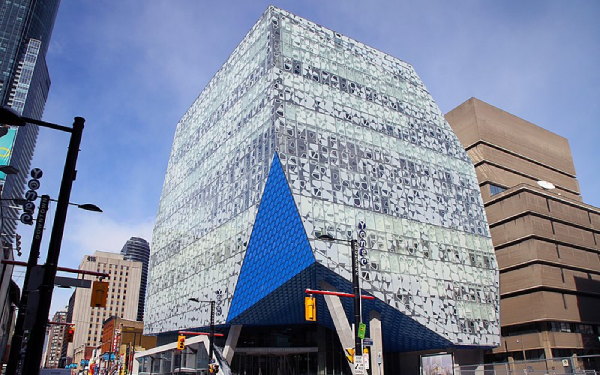
Ryerson University officially renamed Toronto Metropolitan University
Toronto Metropolitan University (TMU) is about to embark on a new chapter in its history with a new name that reflects its mission, values, and vision. On December 1, 2022, the provincial government passed Bill 26, which amends the Ryerson University Act to rename the institution as Toronto Metropolitan University.
Reflecting diversity
This change marks the culmination of a process that began with the Standing Strong (Mash Koh Wee Kah Pooh Win) Task Force, which was established in 2018 to address the legacy of Egerton Ryerson and systemic racism in the institution. One of the task force’s 22 recommendations was to rename the university to reflect its diverse community and commitment to equity, diversity, and inclusion.
The name Toronto Metropolitan University was chosen after extensive consultations with the university community, stakeholders, and Indigenous leaders. It was selected for its inclusivity, relevance, and alignment with the institution’s strategic priorities.
TMU’s President and Vice-Chancellor, Mohamed Lachemi, welcomed the change, saying, “The new name better reflects our identity as a university that serves the metropolitan region of Toronto and our commitment to be a global leader in urban-focused education, research, and innovation.”
The passage of Bill 26 also includes a provision to increase the number of university senators from 51 to 62 to reflect the addition of new faculties and programs, including the faculty of science, the Lincoln Alexander School of Law, and the soon-to-be-established school of medicine. This change will ensure that the university’s governance structure remains representative and effective.
Although the name change has yet to be officially recognized on degrees, academic records, and legal agreements, TMU has already begun the process of updating its signage, websites, and communication materials to reflect the new name.
The university expects the change to be fully implemented in the coming months.
The renaming of TMU is a significant milestone in the university’s history, but it is also part of a broader movement to address the legacy of colonialism, racism, and oppression in Canadian society.
The decision to rename the university was not taken lightly, and it reflects a commitment to reconciliation, justice, and equity.
For many members of the university community, the name change is a long-overdue recognition of the contributions and aspirations of Indigenous, Black, and other marginalized communities. As one student put it,
“The name Ryerson has always been a painful reminder of the harm and trauma inflicted on Indigenous peoples by Egerton Ryerson and the residential school system. Changing the name to Toronto Metropolitan University is a step towards healing and reconciliation.”
Evolving identity
The name change also reflects the university’s evolving identity and mission. Founded in 1948 as Ryerson Institute of Technology, the institution has undergone several transformations over the years, including becoming a polytechnic in 1993 and a university in 2002. Today, TMU is a comprehensive university that offers a range of undergraduate and graduate programs in diverse fields, from business and engineering to social work and journalism.
The university’s strategic plan, TMU Futures, outlines its vision for the future, which includes being a leader in urban-focused research and innovation, fostering a culture of entrepreneurship and social innovation, and promoting sustainability and social justice. The name Toronto Metropolitan University reflects these goals and aspirations, as well as the university’s commitment to serving the needs of the city and its communities.
The name change has also generated some controversy and opposition, particularly from some alumni and members of the Ryerson family, who see it as erasing the legacy of Egerton Ryerson and his contributions to education in Ontario. Egerton Ryerson was a Methodist minister and educator who played a significant role in the development of the public education system in Ontario in the 19th century.

